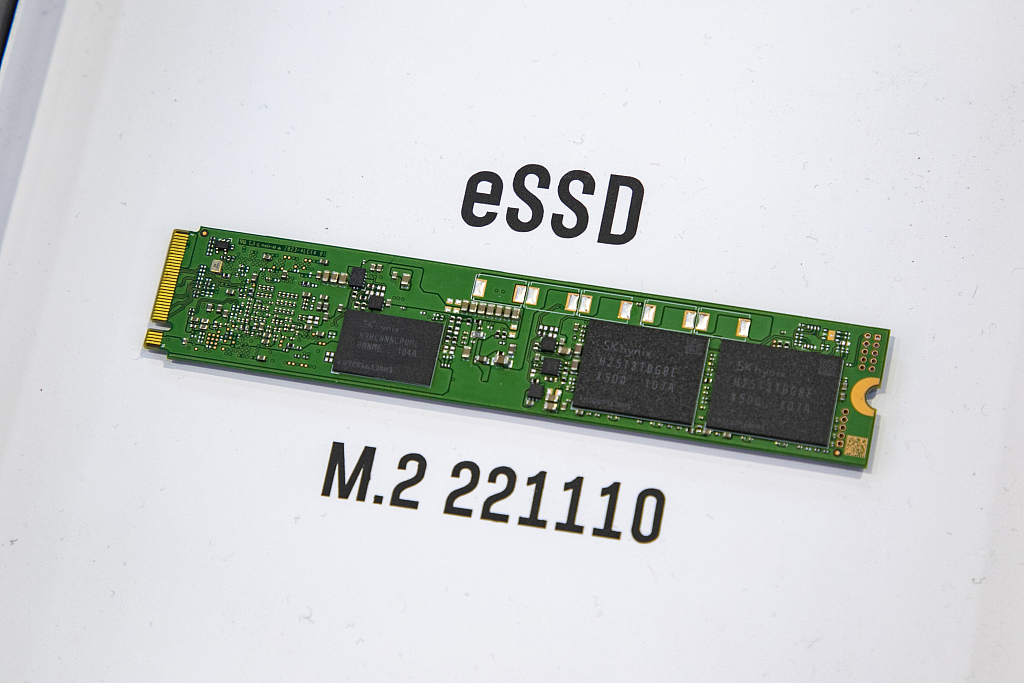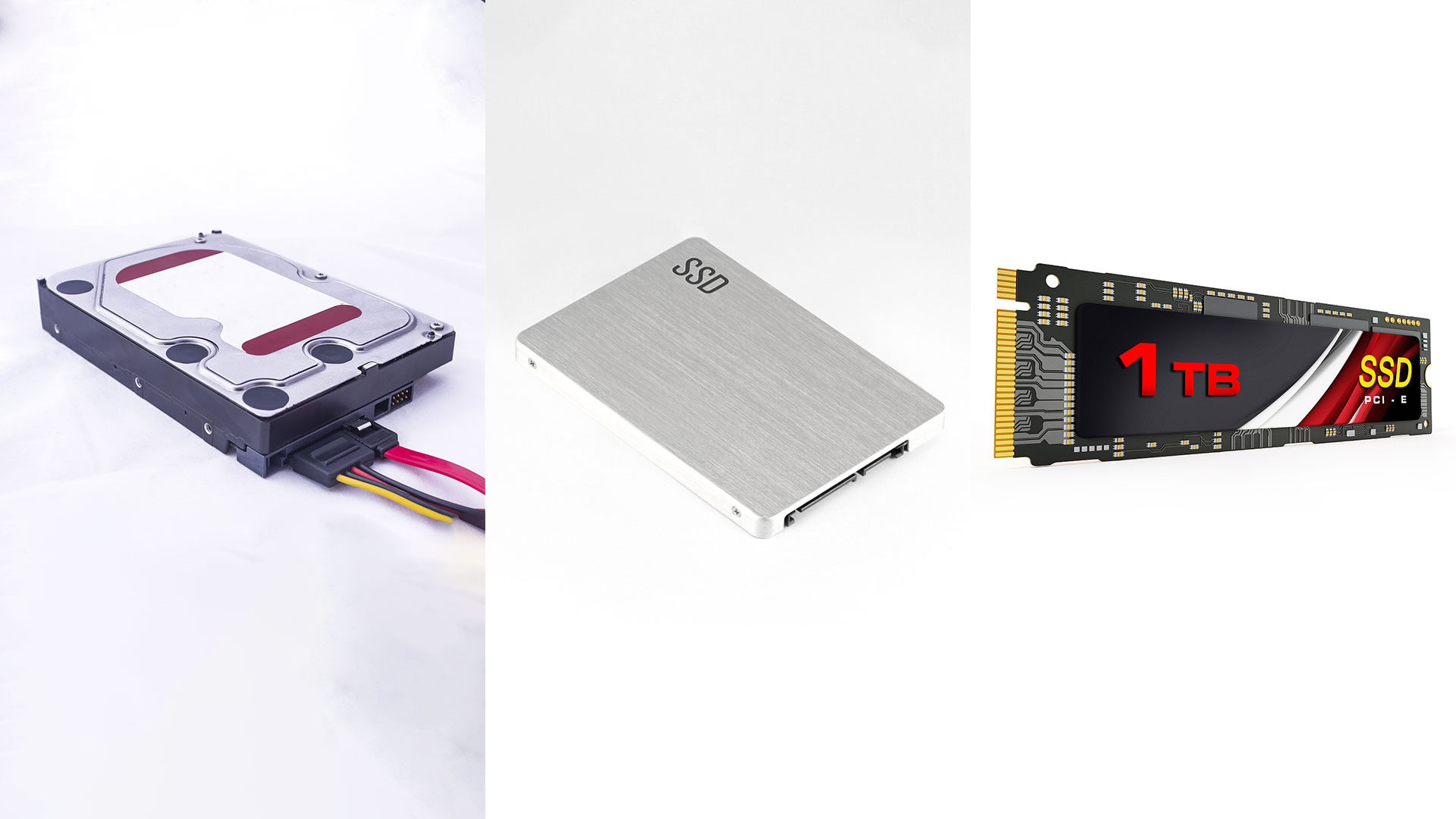
A solid-state drive product showcased at the China International Import Expo in Shanghai, November 9, 2021. /CFP
A solid-state drive product showcased at the China International Import Expo in Shanghai, November 9, 2021. /CFP
Chinese market regulators on Wednesday allowed South Korean semiconductor maker SK Hynix to acquire a branch of U.S. tech giant Intel related to NAND chips but added six conditions to restrict SK Hynix from seeking a monopoly in the enterprise solid-state drive (SSD) market.
According to a document on the official website of the State Administration for Market Regulation (SAMR), the conditions are:
1. Price limits. After the acquirement, SK Hynix is forbidden to sell enterprise-level SSDs (only products with PCIe or SATA ports) to the Chinese mainland at a price higher than the recent two-year average.
2. SK Hynix has to keep expanding its enterprise SSD supply for five years straight.
3. All related sales to the Chinese mainland must comply with fair and non-discriminating principles.
4. SK Hynix is forbidden from forcing Chinese mainland clients to buy its products exclusively.
5. SK Hynix must help a third-party competitor enter the enterprise SSD market.
6. SK Hynix cannot reach any agreement with its main competitors in China about price, supply or sales numbers.
The SAMR also said SK Hynix can apply for the removal of these conditions after five years. SK Hynix also has to report on how they followed the conditions every six months.
In the document, the SAMR also mentioned that it is aware that SK Hynix will control more than half of the enterprise SSD market in China and more than one-third of the global market after the acquirement. That's one of the reasons they decided to add the conditions.
The SAMR also made it clear that the consumer-level SSD market is not related to the acquisition because consumer and enterprise SSDs have a significant difference in performance and cannot replace each other in the market.
China has been cracking down on monopoly-related activities. In November, the government added a new National Anti-monopoly Bureau located right inside the SAMR building in Beijing. Chinese internet giants like Tencent and Alibaba were penalized after the SAMR took over the anti-monopoly functions from the State Council back in 2018.

Illustrations of a mechanical hard disk drive (L), an SATA SSD (C) and a PCIe SSD. /CFP
Illustrations of a mechanical hard disk drive (L), an SATA SSD (C) and a PCIe SSD. /CFP
Unlike traditional hard drives, SSDs use chips instead of disks to store data. Consumer SSDs can be 10-100 times faster than their mechanical counterparts and cost two or three times more, which could be cost-effective for enterprises, especially data centers.
SSDs have been in the consumer market for more than two decades, but enterprises used to be cautious about the innovation because of its potentially shorter life cycle.

